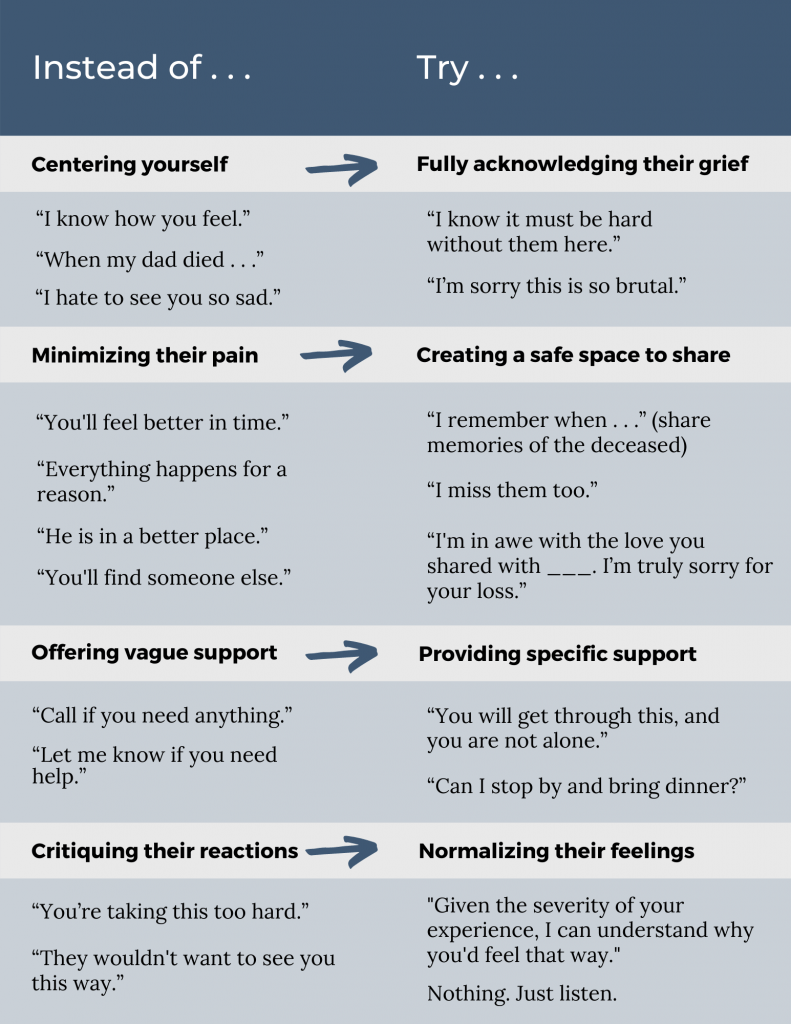7 Lessons COVID Taught Us about Helping Widowed Friends and Planning for Our Own Futures
*Note: The language used in this article mainly focuses on heterosexual couples where a woman has lost a male partner, but we recognize widowhood can take many forms across gender, sexual orientation, and other circumstances.
Over 50 years ago, Elisabeth Kübler-Ross identified the five stages of dying in her book, On Death and Dying. Kübler-Ross and her protégé David Kessler later wrote On Grief and Grieving, in which the original stages of death were similar to those experienced by people grieving a loss.
You may have heard of these stages of grief:
While it can be incredibly helpful to know where someone might be in their grief, the authors make it clear that the stages are “not a method for tucking messy emotions into neat packages. They don’t prescribe, they describe.” Each person grieves in their own way, and to think that anyone will follow a simple, 6-step, linear process can be not only inaccurate, but also unfair and even harmful.
Grief is messy and complex, and we often recycle through the many emotions and stages of it. By acknowledging this messiness, you can feel better equipped to support your widowed friends when they don’t follow the healing path you might expect.
A widowed friend may not be able to process everything you say in the early stages of their grief. But that doesn’t mean what you say doesn’t matter. The graphic below shows a few helpful phrases when you’re not sure how to help or what to say:

Phrases to use when supporting widows
To sum it up, acknowledge their grief, create a safe space for them to share (but don’t expect them to), provide specific and actionable support, and normalize whatever they may be feeling.
Since March 2020, we’ve been confronted with death in a more visible way than perhaps ever before. At least 3.8 million people have died of the disease. On top of that, many have lost jobs and income, social support and networks, and other freedoms.
Each of these losses can compound, and if someone hasn’t fully gone through the grief process with a previous loss, they may take a shortcut—what’s called a “false bridge” in their healing journey. What then happens is that pent-up grief will likely rear its head during a future loss.
Sometimes when people fall apart during a “minor” loss, it can just be the cumulative effect of all those previous false bridges they may have taken. Again, grief is complex, and the path to healing can be long and winding.
Planning your financial legacy will help you and your loved ones not just in the future should anything happen to you, but also now as you clarify and communicate what’s most important to you. A legacy often refers to a gift, such as an inheritance, a family business, or property in a will. But it’s not always limited to tangible items. They can also include intangibles like:
One way you can start planning your own legacy is by answering the following questions:
By reflecting on these questions, you can feel peace of mind that what you’re working toward today can have a lasting impact on those you care most about.
For Individuals
Willow Talk
About Us